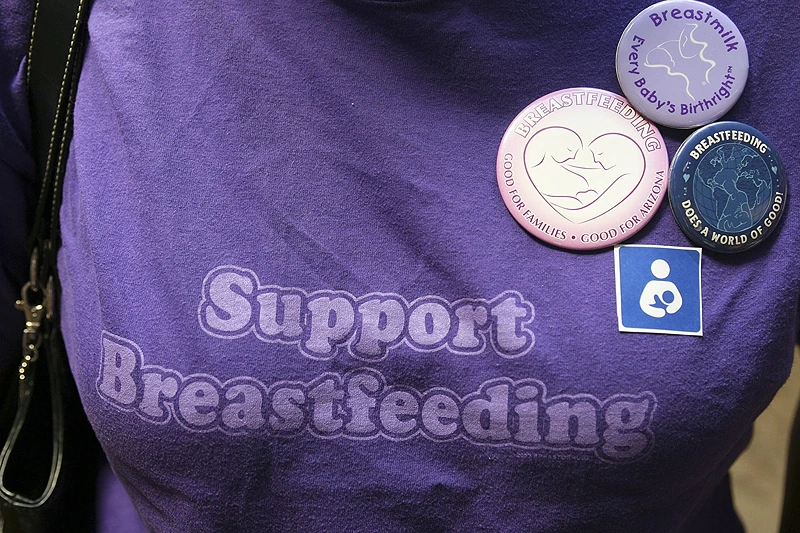
OAN Newsroom
4:28 PM – Monday, February 19, 2024
According to an NHS trust, “transgender women’s breast milk” is “just as healthy” for a baby to consume as that of a biological woman who has given birth.
“An NHS trust is an organisational unit within the National Health Services of England and Wales, generally serving either a geographical area or a specialised function. In any particular location, there may be several trusts involved in the different aspects of providing healthcare to the local population.”
A transgender woman is a biological man with gender dysphoria who identifies as the opposite sex.
According to a leaked letter from a medical director at University Hospitals Sussex NHS Foundation Trust, milk produced by trans women using hormone medications is “comparable to that produced following the birth of a baby,” The Telegraph reported.
In 2021, the hospital became the first to refer to its perinatal services using gender-inclusive terminology, such as “human milk” and “chest-feeding.” It prided itself on being the “first clinical and linguistic guidelines supporting trans and non-binary birthing people.”
Several suggestions regarding trans women’s capacity to make breast milk through “induced lactation” were included in the letter. In order for trans women to grow milk-producing glands, they must take progestin.
“Progestin is a form of progesterone, the hormone that plays a role in the menstrual cycle and pregnancy,” according to the American College of Obstetricians and Gynecologists (ACOG).
Prolactin production must be stimulated, and this requires the use of medications like domperidone, which can also be used by biological women who are having difficulty breastfeeding. This hormone instructs the body to start producing breast milk.
Using World Health Organization (WHO) guidelines from the previous year, the hospital defended its actions by citing “overwhelming evidence” that “human milk” is superior to formula milk for infants.
A 2022 study was also highlighted by the hospital, which claimed there were “no observable side effects in babies” breastfed with “testosterone concentrations in baby milk.”
However, there is still not very much scientific research into the effects of induced breastfeeding among transgender women.
“This letter is unbalanced and naïve in its assertion that the secretions produced by a male on hormones can nourish an infant in the way a mother’s breast milk can,” said Lottie Moore from the thinktank group Policy Exchange.
“A child’s welfare must always take precedence over identity politics and contested belief systems that are not evidence-based. The NHS should not be indulging in this nonsense,” she continued.
Meanwhile, a spokesperson for the BHS trust responded by saying, “We stand by the facts of the letter and the cited evidence supporting them.”
Stay informed! Receive breaking news blasts directly to your inbox for free. Subscribe here. https://www.oann.com/alerts

